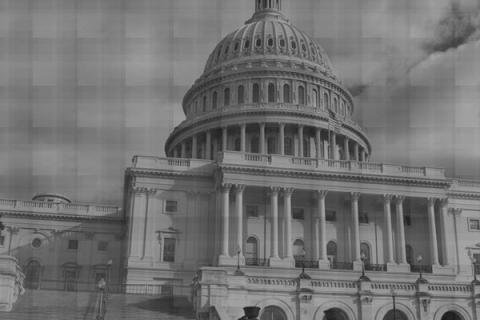
Back in 2008, President Obama revolutionized the way politicians campaign, incorporating the heavy use of social media and online tools into his campaign strategy. Since 2008, however, a lot has changed. Facebook has grown to host over 800 million active users, with Twitter close behind at 500 million users as of 2012. New-comers like Google+, Pinterest, and Instagram have emerged on the social scene, allowing candidates to post images and even participate in live-chats online.
This year, we've not only seen the meteoric rise in social networking as a viable alternative to traditional modes of reporting, but we've seen the development of mobile apps and integration of political coverage into the use of smart phones. Arguably the most significant change since the 2008 election is the drastic increase in mobile activity, with smart phones being used by nearly half of Americans in 2012.
Google has been active in spreading the message that new media is taking over the political realm, reporting that more than 80% of eligible voters are online.
"Access to political information no longer comes from one place – or one screen. In just the four years since the last presidential election, the continued growth of the web and the proliferation of mobile devices has radically transformed when, where, and how voters access political information.”
 The Wall Street Journal concurs, arguing that "political conventions, long the ultimate made-for-TV presentation, this year are coming of age as digital-media events—highlighting the decline of network television coverage of the gatherings."
The Wall Street Journal concurs, arguing that "political conventions, long the ultimate made-for-TV presentation, this year are coming of age as digital-media events—highlighting the decline of network television coverage of the gatherings."
To substantiate that claim, Google reports that 1 out of every 3 likely voters in November say that they didn’t watch TV in the past week.
Furthermore, 83% of mobile phone owners are registered voters, making mobile convention apps a marketable option for politicians. Which is why both the Republican and Democratic Parties have created mobile apps to accompany their coverage of this years conventions.
The Republican National Convention app, titled "Tampa 2012", aims to break down walls by allowing users to view and participate in Google Hangouts right from their phones. For those attending the convention, the app features a tab called "My Experience", allowing you to document your time in Tampa. This cutting edge app also provides a live stream of updates from the official RNC Facebook, Twitter, YouTube, Google+, Pinterest, Instagram, and Foursquare.
Gearing up for next week's festivities, the Democratic Party has also released a mobile app, as reported on the Social Ballot. Similar to the GOP app, the 2012 DNC app hosts a live feed of social updates and allows attendees to document their experiences in a digital scrapbook.
It's not just the party committees that have created mobile apps for the 2012 party conventions. Recognizing the trend in social check-ins, Time magazine forged a partnership with Foursquare, the mobile location-based check-in service, providing exclusive access to information and updates that can be unlocked upon checking-in in both Tampa and Charlotte.
The National Journal has also released a convention app, called Re:Con Conventions 2012, to bring live coverage of both the conventions in Tampa and Charlotte to smart phone users - for free. Described as "an app full of conventional wisdom", the National Journal provides event schedules, photos, maps, local listings and more.
Regardless of your party affiliation, the opportunity to have breaking political news in the palm of your hand is a ground breaking advancement characterizing the 2012 presidential election. Whether or not you trust it, however, it up to you.
